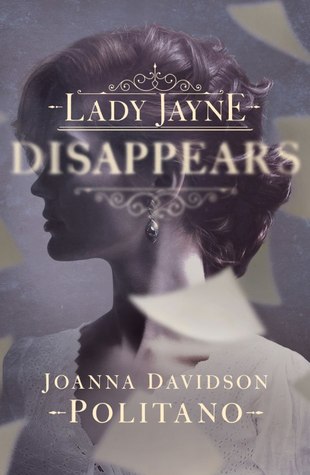Lady Jayne Disappears

Lady Jayne Disappears
Joanna Davidson Politano
Revell
When Aurelie Harcourt's
father dies in debtor's prison, he leaves her just two things: his
wealthy family, whom she has never met, and his famous pen name,
Nathaniel Droll. Her new family greets her with apathy and even
resentment. Only the quiet houseguest, Silas Rotherham, welcomes her
company.
When Aurelie decides to complete her father's unfinished serial novel, writing the family into the story as unflattering characters, she must keep her identity as Nathaniel Droll hidden while searching for the truth about her mother's disappearance--and perhaps even her father's death.
Author Joanna Davidson Politano's stunning debut set in Victorian England will delight readers with its highly original plot, lush setting, vibrant characters, and reluctant romance.
When Aurelie decides to complete her father's unfinished serial novel, writing the family into the story as unflattering characters, she must keep her identity as Nathaniel Droll hidden while searching for the truth about her mother's disappearance--and perhaps even her father's death.
Author Joanna Davidson Politano's stunning debut set in Victorian England will delight readers with its highly original plot, lush setting, vibrant characters, and reluctant romance.
I feel torn about this book because while not every aspect of it won me over, there were quite a few things I genuinely loved. This novel was so, so obviously influenced by Charles Dickens that it made my heart happy. Dickens-ish references (from both his story and his own life) abound, and the inclusion of the debtors prison was reminiscent of Little Dorrit. The plot was full of twists and turns, and the inspiration and bones of the story were spot-on. I've read many historical authors who are obviously influenced by Jane Austen or Charlotte Bronte, but none that so pleasingly remind me of Charles Dickens. (I freely confess that chunky mid-century Victorian novels are kind of my jam.)
Yet the novel's cover could be symbolic of my own feelings on the book as a whole. I like the cover's concept...the fluttering pages, the obstruction of the woman's eyes by the title...yet in the end, something doesn't jive with me. In the case of the cover, it's the complete lack of historical accuracy (I mean, by only looking at the cover you might not even know that this is historical fiction, to be honest) and the fact that I think the title placement is too high. In the case of the novel...well, that's a little harder to pin down. Maybe it's because that's just not as meaty and thick as, well, one of Dicken's novels. The writing is just a bit too modern (aside from some anachronisms, part of that is probably just a matter of taste- I understand that not a lot of readers like sentences that drag on for an entire paragraph the way I do!) for me to fully trick myself into thinking that I'm in Victorian England.
However, despite my mixed feelings, I'll be keeping an eye on this author. It's a unique story, and that's what makes it stand out in the end, especially among other debut novels. Some authors just get better the more they write, and if that turns out to be the case with Joanna Davidson Politano, then I'm sure we're going to be treated with some fabulous novels in the near future.
I received this book for free from the publisher in exchange for my honest review.

Comments
Post a Comment